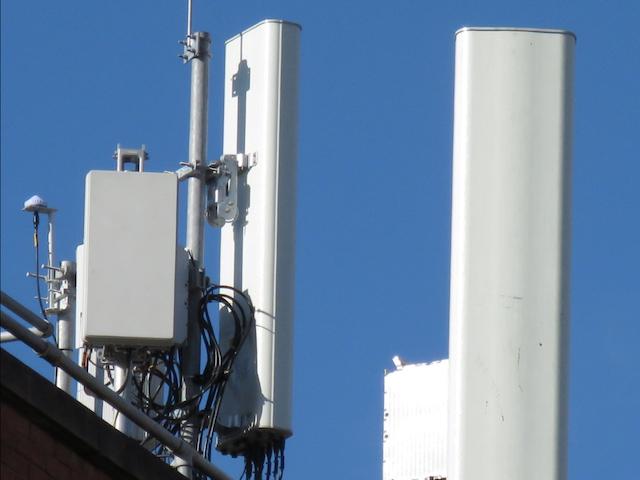In a groundbreaking move poised to reshape Israel's telecommunications landscape, the Ministry of Communications has announced its bold plan to invite new players into the country's cellular infrastructure market. This unprecedented decision, revealed on Tuesday, signals the ministry's commitment to fostering greater competition and accelerating the deployment of cutting-edge 5G technology across the nation.
A Vision for the Future of Connectivity
The ministry’s proposal, which awaits final approval following a public hearing, is designed to dismantle the current monopoly held by Israel's three main cellular networks—Pelephone, Cellcom, and Partner & Hot Mobile. These giants have long dominated the market, managing their own infrastructure with little room for external competition. However, under the new directive, a host of fresh contenders will be empowered to enter the field, using the same frequencies that have been the exclusive domain of these established players.
Director-General of the Communications Ministry, Inbal Mashash, expressed unbridled optimism about the transformative potential of this initiative. "We anticipate that this move will lead to unprecedented investment in infrastructure," Mashash stated, envisioning a surge of innovation and capital that will propel Israel into the forefront of global telecommunications. "This is not just about introducing new competitors; it's about accelerating the spread of 5G networks nationwide, vastly improving coverage and reception, and ultimately enhancing the quality of life for every citizen."
#OneLayer Announces #Partnership with #World #Wide #Technology to #Transform #Private #Cellular #Solutions for #Enterprises https://t.co/fMDaoO3jV1 @OneLayerHQ pic.twitter.com/neoZ5gGcr6
— Cision/PR Newswire Israel (@PRNewswireIL) September 25, 2024
Empowering New Players and Technologies
The scope of this initiative is nothing short of revolutionary. New entities, including major players such as the electric company and various capital funds, will be authorized to operate sophisticated radio equipment capable of supporting 5G technology for public networks. These newcomers will have the ability to provide up to 40% of the capacity on any given network, utilizing frequencies previously restricted to the incumbent telecom giants. This shift is expected to democratize access to critical infrastructure, spurring competition that will drive down costs and spur technological advancement.
Yoaz Hendel, the Minister of Communication of the State of Israel.
— Hillel Fuld (@HilzFuld) December 21, 2022
We had a good discussion about cellular technology, Wi-Fi speeds, and more.
He mentioned he knows Ari’s story as well as my younger brother, Eytan.
Gotta love meeting a member of Knesset on the beach in Eilat. pic.twitter.com/gJTOqGF7Q6
Communications Minister Shlomo Karhi heralded the move as a watershed moment for the industry, emphasizing the benefits of diversifying the market. "This is a game-changer," Karhi proclaimed. "By allowing new players into the field, we're not just increasing competition—we're paving the way for faster, more reliable, and more affordable communication services for all Israelis. The ripple effects of this decision will be felt across the economy, as businesses and consumers alike reap the rewards of a more dynamic and competitive market."
Controversy and Concerns
However, the path to this new era is not without its challenges. The decision has sparked significant controversy, particularly from within the ranks of the current market leaders. The workers union of Pelephone, one of Israel's major cellular providers, has voiced strong opposition to the ministry’s plan. They argue that the move favors financiers over the public good and could undermine national security.
Israel's Communications Ministry plans to increase competition by allowing new entities to enter the cellular infrastructure market, enabling 5G support.
— The Jerusalem Post (@Jerusalem_Post) September 25, 2024
✍️by @EveBelleYoung https://t.co/JEG9Xtgpto
In a sharply worded statement, the union condemned the proposal as "dangerous and destructive," warning that it could erode the quality of communication services and compromise the nation’s security infrastructure. "It is sad that the Communications Ministry is operating in such a mistaken way," the union declared. "Instead of addressing the real issues plaguing our infrastructure with thorough and professional solutions, they are opting for a quick fix that will only lead to greater problems down the road."
The Road Ahead
As the debate rages on, the Communications Ministry remains steadfast in its vision of a more competitive and innovative telecommunications sector. The upcoming public hearing will be a critical juncture in determining the future of this ambitious initiative. If approved, Israel could soon find itself at the forefront of global telecom innovation, setting a new standard for connectivity in the 21st century.
The decision will have far-reaching implications, not only for the telecommunications industry but for the entire nation. As Israel stands on the brink of this monumental shift, all eyes are on the Communications Ministry, waiting to see if this bold experiment will deliver on its promise of a brighter, more connected future for all.


